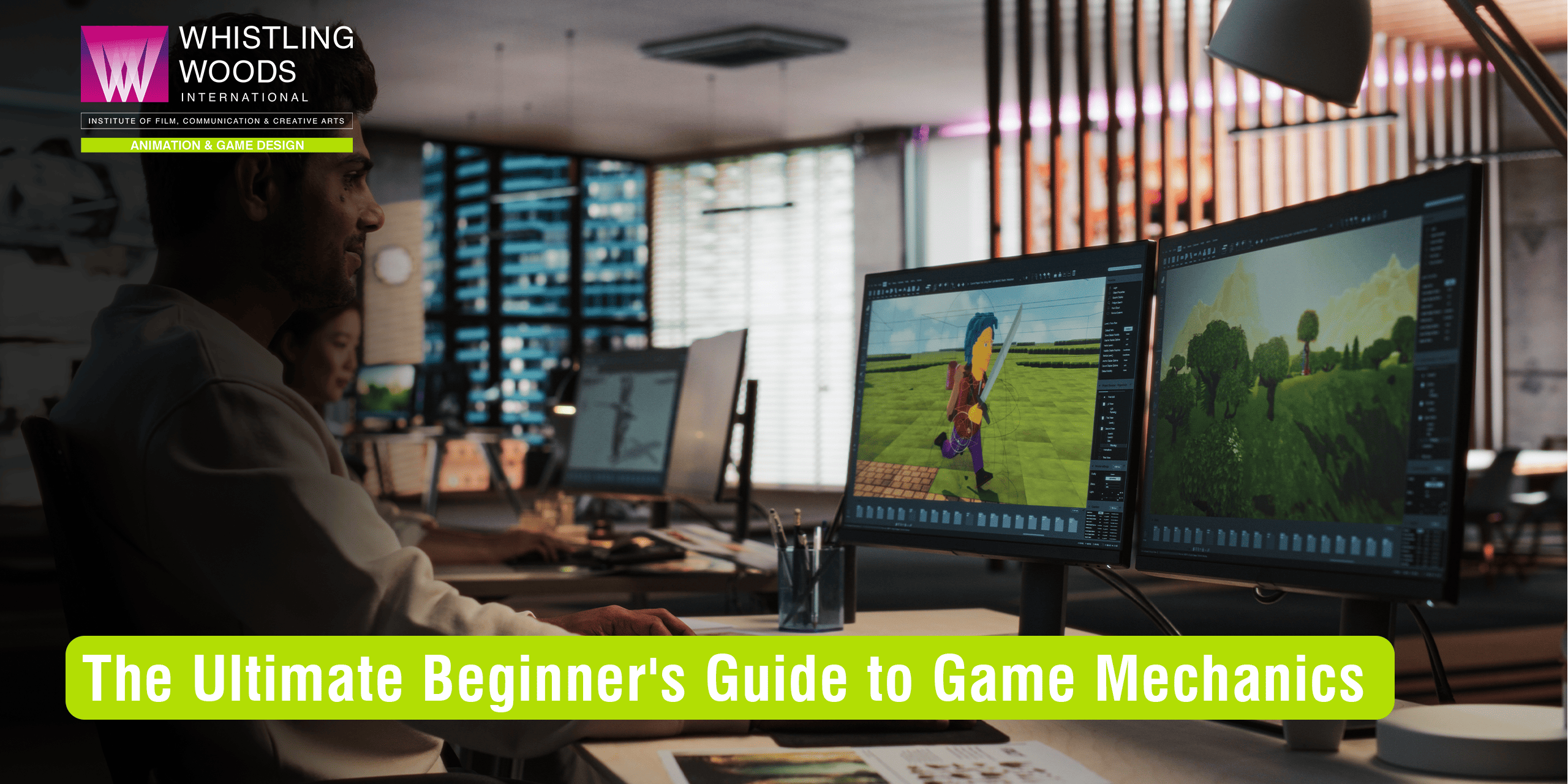Game design and development are inherently creative processes that involve a blend of creativity, technical innovation, and collaboration. For anyone aspiring to become a designer or developer, it is important to learn the necessary skills and understand all the intricate aspects of gameplay. If you are someone interested in making game development your career, you might already be familiar with game mechanics. Game mechanics are the heart of gameplay design in every video game. But what does this term mean? How important is it in the creative process of game development? Let’s get into the details of this topic here:
Game Mechanics: What Does It Mean?
Game mechanics refer to the processes, elements, and rules that determine what a player can and cannot do within the game, how the game works, and, ultimately, what defines failure or success. Game mechanics include several components, such as characters, interactions, objectives, rewards, resource management systems, level design, and more.
Game mechanics bring characters to life and add depth to in-game actions. They guide the player throughout the game, helping them navigate and interact with other characters in the game. Game mechanics are responsible for providing an immersive and engaging experience for the player.
Different Types of Game Mechanics
Strategy Mechanics
Strategy mechanics require players to use problem-solving skills to progress through various levels. These mechanics involve decision-making that directs the game’s outcome. Examples include solving puzzles, managing resources, planning, and developing combat strategies.
Action Mechanics:
Action mechanics are an integral part of a well-rounded Game design course and are among the most common features in video games. These mechanics focus on players controlling objects or characters to interact with the environment swiftly. Examples include shooting, dodging obstacles, jumping, and using projectiles.
Exploration Mechanics:
Exploration mechanics focus on discovering new areas and hidden secrets within the game world, which are often obscured from the player’s immediate view. Examples include uncovering clues, exploring new territories, and finding hidden objects.
Role-playing Mechanics:
Role-playing mechanics, a crucial aspect of any game design college, allow players to customise characters and progress through the game by gathering items and developing skills. These mechanics often involve completing missions, levelling up, and achieving other objectives that enhance the player’s gaming experience.
Resource Management Mechanics:
Resource management mechanics challenge players to manage limited resources—such as ammunition, money, or health—efficiently to succeed. Proper management of these resources is critical for progressing through the game.
Game Mechanics Design: What Are Its Benefits?
The future of game design is revolutionising the gaming industry, creating more interactive and complex environments for crafting engaging and immersive experiences. Game mechanics are central to this transformation, enhancing gameplay by promoting strategy, problem-solving, and collaboration. The benefits of well-designed game mechanics include:
Maintaining Flow:
Game mechanics help maintain a sense of flow within the game, keeping players invested and motivated to complete challenges and progress. This flow enhances user retention and overall engagement.
Motivation through Rewards:
Effective game mechanics introduce rewards for completing tasks or objectives, motivating players to continue and adding excitement to the gameplay.
Encouraging Player Agency:
Game mechanics empower players to make meaningful decisions that shape their gameplay experience. This enhances engagement by giving players a sense of control and ownership over their actions.
Improving User Experience:
Game mechanics, such as leaderboards, levels, rewards, and progression systems, contribute to a satisfying user experience and result in higher player retention rates.
Enabling Emergent Gameplay:
One of the key advantages of game mechanics is their potential to create emergent gameplay. This occurs when players shape their own narratives and make decisions that result in unexpected outcomes, heightening excitement and engagement.
For a game developer or designer, it is important to work on various elements of the game to create an optimal gaming experience for players. If you aspire to become a game developer or designer, mastering the various elements of game mechanics is essential for crafting a compelling gaming experience. For those eager to build a career in the gaming industry, enrolling in a structured course at a game design school can provide the foundational knowledge and tools you need to succeed.
Create Your Own Game Design Legacy with Whistling Woods International
Rise to prominence under the guidance of industry experts in the gaming world at Whistling Woods International, an eminent game design college.
Learn how to craft dynamic and interactive user experiences for players, master the techniques of integrating various elements of game design and mechanics, develop the art of storytelling, and gain a deep understanding of both technical and creative skills.
At WWI, we offer BDes in Game Design, a four-year program tailored to provide students with personalised training from industry professionals. Our holistic approach ensures that students not only gain knowledge and skills but also acquire hands-on experience through real-world projects.
Our comprehensive training program equips you with the ability to create dynamic and interactive user experiences, enabling you to make your mark in the ever-evolving world of game design.
Shape your future with advanced and innovative gaming skills, and build a creative career as a game designer by gaining deep insights from our experts at WWI!

